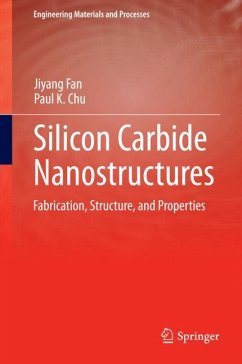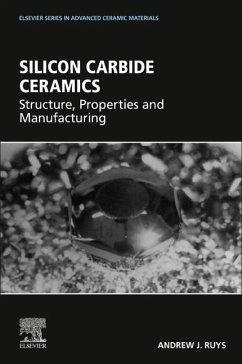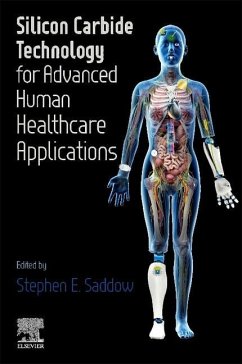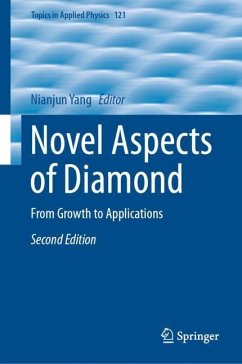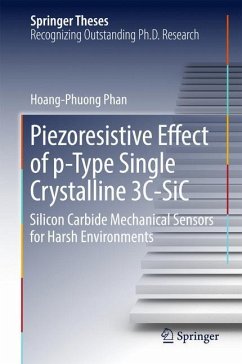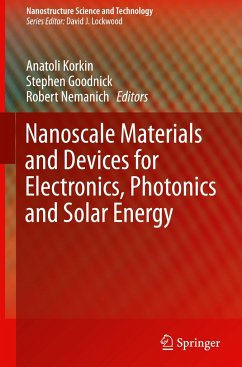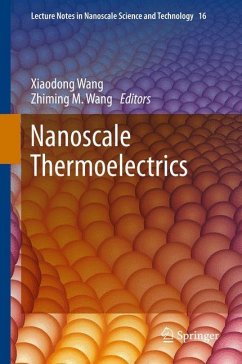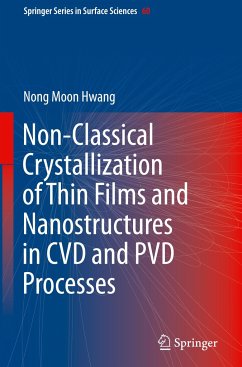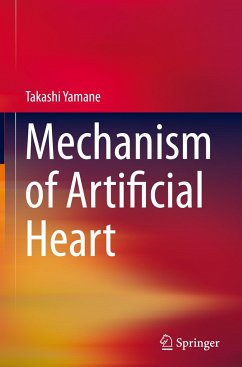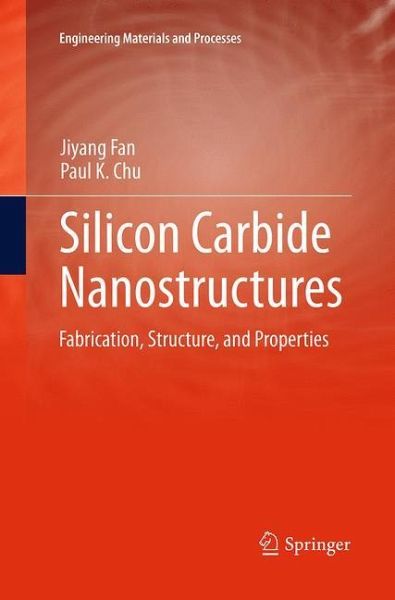
Silicon Carbide Nanostructures
Fabrication, Structure, and Properties

PAYBACK Punkte
61 °P sammeln!
This book brings together the most up-to-date information on the fabrication techniques, properties, and potential applications of low dimensional silicon carbide (SiC) nanostructures such as nanocrystallites, nanowires, nanotubes, and nanostructured films. It also summarizes the tremendous achievements acquired during the past three decades involving structural, electronic, and optical properties of bulk silicon carbide crystals.SiC nanostructures exhibit a range of fascinating and industrially important properties, such as diverse polytypes, stability of interband and defect-related green to...
This book brings together the most up-to-date information on the fabrication techniques, properties, and potential applications of low dimensional silicon carbide (SiC) nanostructures such as nanocrystallites, nanowires, nanotubes, and nanostructured films. It also summarizes the tremendous achievements acquired during the past three decades involving structural, electronic, and optical properties of bulk silicon carbide crystals.
SiC nanostructures exhibit a range of fascinating and industrially important properties, such as diverse polytypes, stability of interband and defect-related green to blue luminescence, inertness to chemical surroundings, and good biocompatibility. These properties have generated an increasing interest in the materials, which have great potential in a variety of applications across the fields of nanoelectronics, optoelectronics, electron field emission, sensing, quantum information, energy conversion and storage, biomedical engineering, and medicine. SiC is also a most promising substitute for silicon in high power, high temperature, and high frequency microelectronic devices. Recent breakthrough pertaining to the synthesis of ultra-high quality SiC single-crystals will bring the materials closer to real applications.
Silicon Carbide Nanostructures: Fabrication, Structure, and Properties provides a unique reference book for researchers and graduate students in this emerging field. It is intended for materials scientists, physicists, chemists, and engineers in microelectronics, optoelectronics, and biomedical engineering.
SiC nanostructures exhibit a range of fascinating and industrially important properties, such as diverse polytypes, stability of interband and defect-related green to blue luminescence, inertness to chemical surroundings, and good biocompatibility. These properties have generated an increasing interest in the materials, which have great potential in a variety of applications across the fields of nanoelectronics, optoelectronics, electron field emission, sensing, quantum information, energy conversion and storage, biomedical engineering, and medicine. SiC is also a most promising substitute for silicon in high power, high temperature, and high frequency microelectronic devices. Recent breakthrough pertaining to the synthesis of ultra-high quality SiC single-crystals will bring the materials closer to real applications.
Silicon Carbide Nanostructures: Fabrication, Structure, and Properties provides a unique reference book for researchers and graduate students in this emerging field. It is intended for materials scientists, physicists, chemists, and engineers in microelectronics, optoelectronics, and biomedical engineering.



